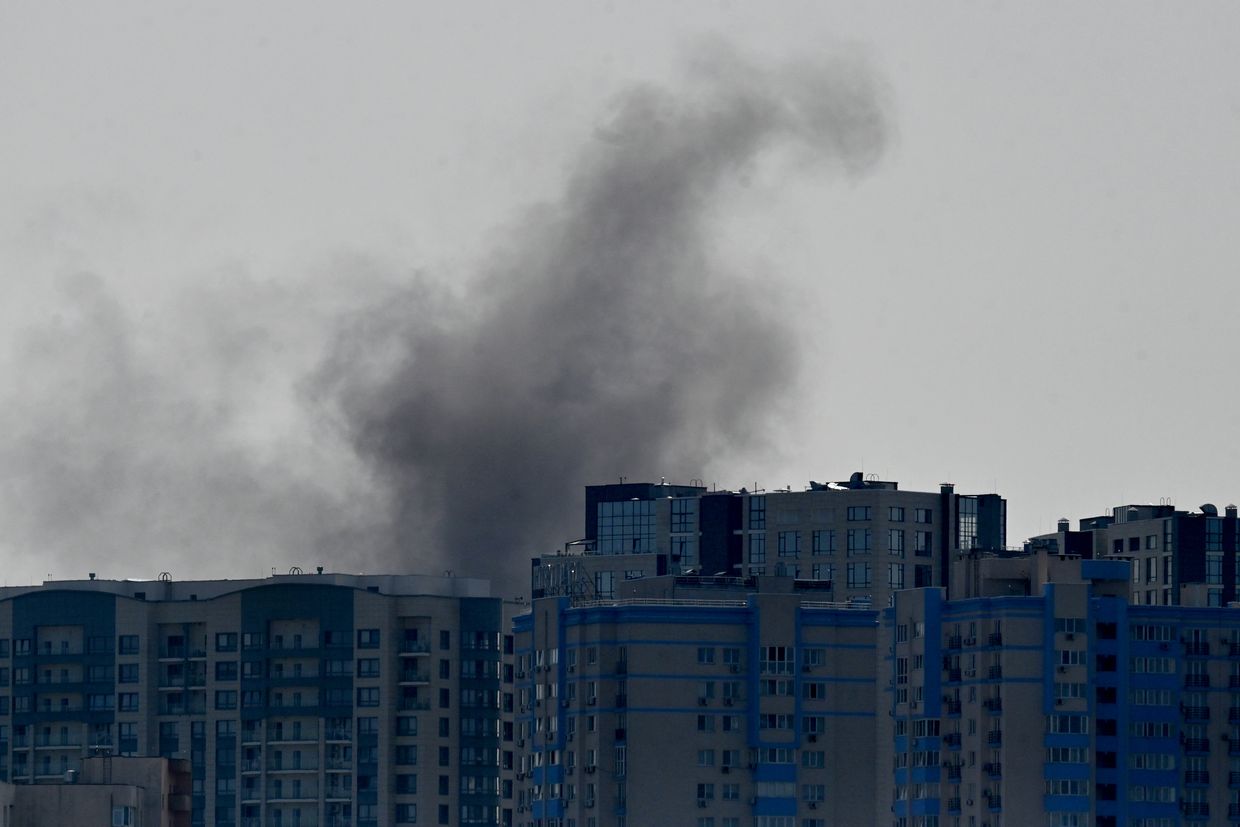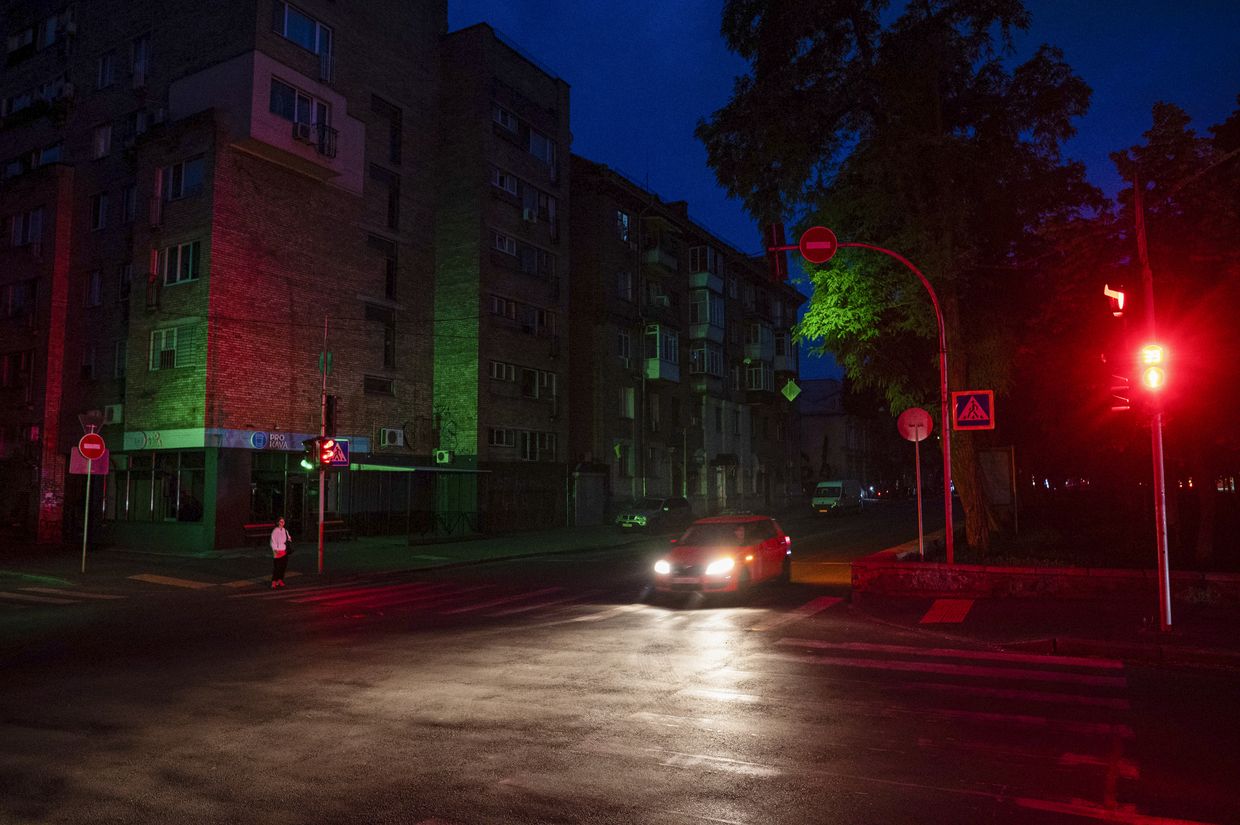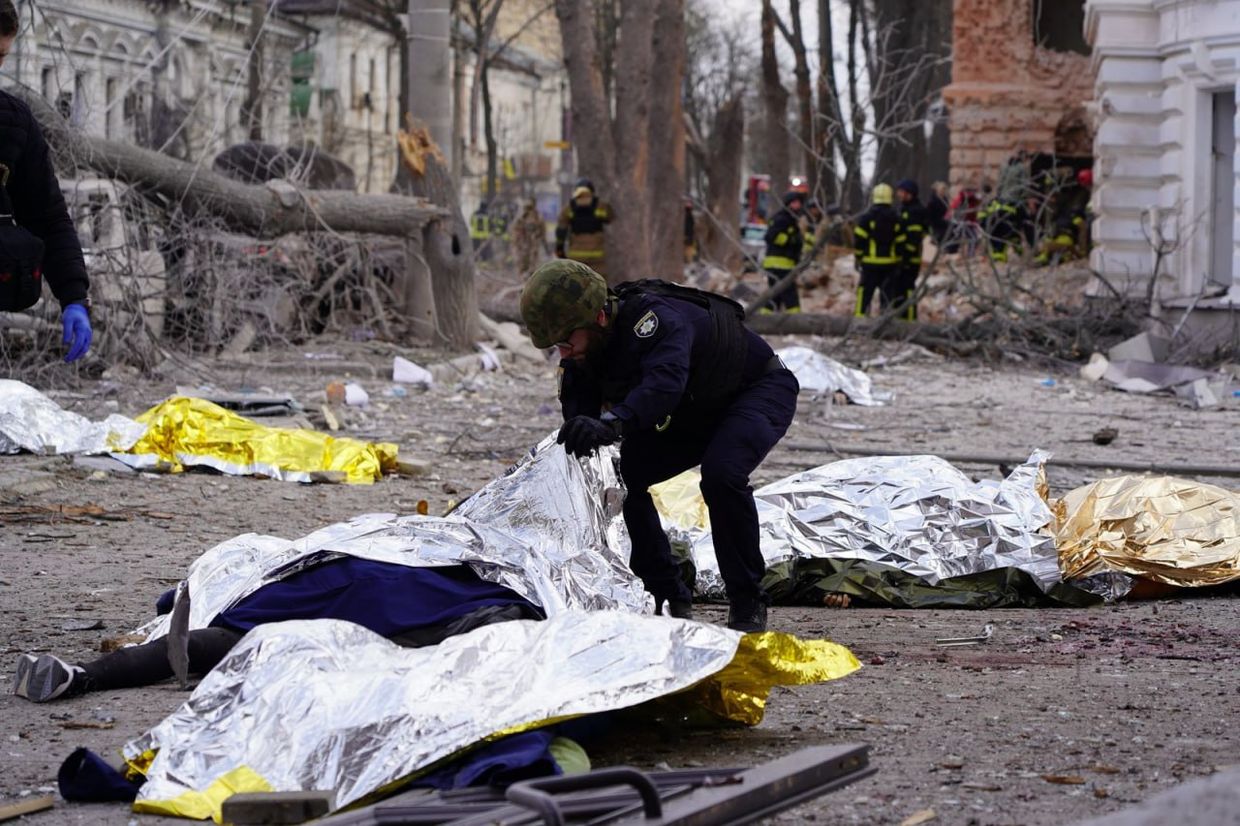Russia's attacks on Ukraine's energy infrastructure caused a sharp rise in Ukrainians citing blackouts as a reason for leaving the country over the summer, the United Nations Human Rights Monitoring Mission in Ukraine (HRMMU) said in a report published on Sept. 19.
Russia launched nine coordinated attacks against Ukraine's electricity infrastructure between March and the end of August, striking facilities in 20 oblasts and affecting millions of civilians.
At least 18 people were killed in the vicinity of the strikes, and at least 84 were injured, the report said. The attacks destroyed around 9 gigawatts of electricity generation capacity, "equivalent to half of what Ukraine requires during winter months," the report said.
Border monitoring carried out by the United Nations High Commissioner for Refugees (UNHCR) "indicated a slight rise in departures from Ukraine due to lack of access to electricity, water, and heating beginning in April," the report said.
That rise "starkly increased" by June, and in July, nearly half (49%) of those "interviewed at the border departing Ukraine reported they were leaving due to the energy situation."
"During the summer period, energy-related reasons were the second most important factor contributing to departures, in addition to broader concerns related to the volatile security situation," the HRMMU said.
The report highlighted that Ukraine's National Bank revised its forecast on population movement for the coming year due to the destruction inflicted on Ukraine's energy system.

The National Bank now projects an additional 500,000 people will be displaced between 2024 and 2025.
"From heating homes and ensuring clean water to powering online education, running businesses, and functioning health services, the destruction of electricity infrastructure affects almost every aspect of daily life," said HRMMU Head Danielle Bell.
According to one energy company cited in the report, the attacks damaged three times more Ukrainian power generation units than during the campaign of strikes during the winter of 2022-2023.
The HRMMU noted that the attacks since March targeted electricity generation facilities to a much larger extent than the previous campaign of strikes. Experts told HRMMU that the upcoming winter may see outages of between 4 and 18 hours per day.
Blackouts particularly impact those living in cities, where inhabitants rely on central heating.
In Kyiv, for example, 95% of the city's three million inhabitants "rely on centralized district heating, which is delivered to consumers in high-rise buildings using electric pumps," the report said.
The strikes impacted not only heating but also water distribution, as electricity is required to distribute water to consumers.
"Most municipal water utilities lack backup energy sources to ensure consistent supply in the case of prolonged power outages," the report said.
The HRMMU also highlighted that power is needed for schools "and to provide internet access for the 1.7 million children in Ukraine who attend school online" due to the safety risks of attending in-person.
Russia's attacks on Ukrainian electricity infrastructure "likely violated all three principles of international humanitarian law," the HRMMU concluded.













